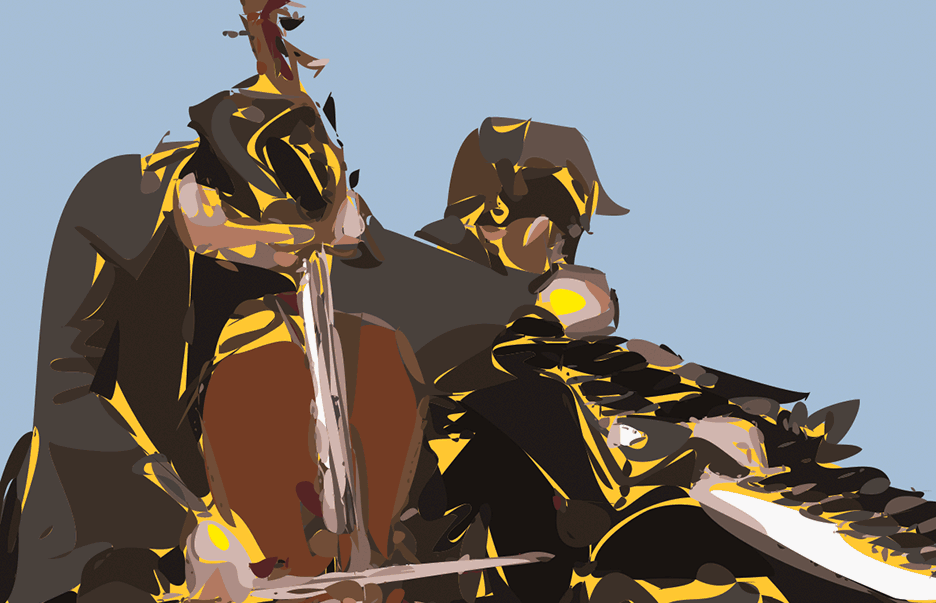Special guest cellist Fred Sherry. Music of Bach, Scelsi, Messiaen, and Hildegard von Bingen
Scelsi: Three Latin Prayers (1972)
Messiaen: Vocalise (1935) and Louange à l'éternité de Jésus (1941)
Hildegard von Bingen: selections from Symphony of the Harmony of Celestial Revelation
Previews from the NY Times—“brilliant young cellist"—and the New Yorker—"gifted young cellist and pianist.”
Jay Campbell has been recognized for approaching both old and new works with the same probing curiosity and emotional commitment. His performances have been called “electrifying” by the New York Times, “gentle, poignant, and deeply moving” by the Washington Post, and on WQXR by Krzysztof Penderecki for “the greatest performance yet of Capriccio per Sigfried Palm.” Campbell made his debut with the New York Philharmonic in 2013 and has soloed in major venues around the globe including Carnegie Hall’s Stern Auditorium, Avery Fisher Hall, Lucerne’s KKL, as well as recitals in Carnegie’s Weill Hall, the Kennedy, Mondavi, and Krannert centers. Dedicated to introducing audiences to the music of our time, Campbell has worked closely with some of today’s most creative musicians including Pierre Boulez, Elliott Carter, Matthias Pintscher, John Adams, Kaija Saariaho, and countless others from his own generation. His close association with John Zorn resulted in the 2015 release of Hen to Pan (Tzadik) featuring all works written for Campbell, and was listed in the New York Times year-end Best Recordings of 2015. Forthcoming discs in 2016 include a disc of Beethoven, Debussy, Stravinsky and Pintscher (Victor Elmaleh Collection), and a disc of works commissioned for Campbell by David Fulmer (Tzadik). Equally enthusiastic as a chamber musician and teacher, Campbell is currently on faculty at Vassar College and has been a guest at the Marlboro, Chamber Music Northwest, Moab, Heidelberger-Fruhling, DITTO, and Lincoln Center festivals.
In performances ranging from the early Baroque to the newly written, Conor Hanick’s playing has been described as “brilliant,” “astounding,” (New York Times) “expert,” (Philadelphia Inquirer), and “sparkling,” (Strad) while reminding New York Times chief critic Anthony Tommasini of a “young Peter Serkin.” Although Conor has been recognized as a “true champion of contemporary music” (NPR) through his deep commitment to the music of our time, Tommasini wrote that Conor’s “technical refinement, color, crispness and wondrous variety of articulation … benefit works by any master.” Conor’s 2015-2016 season is highlighted by concerto appearances with Jeffery Milarsky and The Juilliard Orchestra in Milton Babbitt’s Second Piano Concerto at Alice Tully Hall, and an appearance with Alan Gilbert in György Ligeti’s Piano Concerto for the New York Philharmonic Biennial at the Metropolitan Museum of Art. In addition, Conor collaborates with The Metropolitan Opera Chamber Players and James Levine at Carnegie Hall in music by Pierre Boulez; the International Contemporary Ensemble (ICE) in music of Louis Andriessen at the Park Avenue Armory; cellist Joshua Roman in recital at Town Hall in Seattle; and pianist Pedja Muzijevic at the Baryshnikov Arts Center in New York City.
Press
"This brilliant young cellist [Jay Campbell] has earned a reputation for innovative programs. Here, accompanied by Conor Hanick, he offers an intriguing lineup of arrangements for cello of Scelsi’s “Three Latin Prayers,” Messiaen’s “Vocalise” and “Louange à l’Éternité de Jésus,” and selections from Hildegard von Bingen’s “Symphony of the Harmony of Celestial Revelations.” — VIVIEN SCHWEITZER, New York Times Critics' Pick
"Columbia University’s outpost for Italian culture (which boasts a lovely little teatro) has a regular run of interesting concerts. The gifted young cellist and pianist, confidants of some of New York’s finest composers, offer a program of music on sacred themes, ranging from the medieval (selections from the “Symphony of the Harmony of Celestial Revelation”) to the modern (Scelsi’s “Three Latin Prayers” and an excerpt from Messiaen’s “Quartet for the End of Time”)." — The New Yorker
